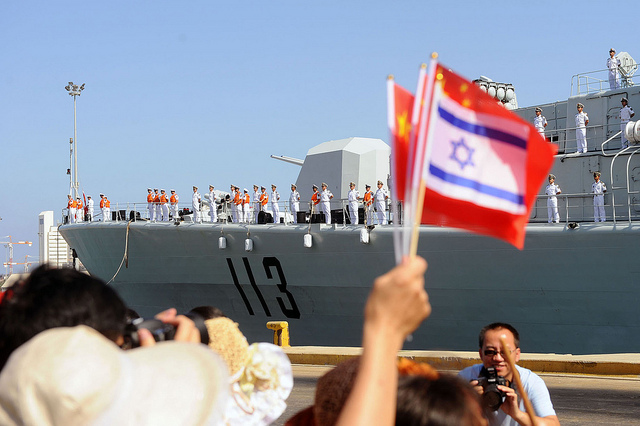In Australia, there’s a tendency to see Israel purely through the lens of the Palestinian issue and the peace process. But there’s really no country in the Middle East whose interests are more closely aligned with Australia’s than Israel.
That’s why four years ago ASPI, with the generous support of the Pratt Foundation, established an annual strategic dialogue with Israel, teaming with the Begin–Sadat Center for Strategic Studies (BESA). The aim was to examine areas of defence and security cooperation in which our interests are aligned, like counterterrorism and cybersecurity.
The fourth annual Be’er Sheva Dialogue was held in Melbourne earlier this month. It once again brought together defence officials, senior parliamentarians and analysts from ASPI and BESA and elsewhere to discuss areas of strategic common interest and potential collaboration.
The dialogue is named in honour of the historic Anzac Light Horse victory at the Battle of Beersheba during World War I and alternates its location between Australia and Israel each year. Australian parliamentary participants were well represented this year and included Assistant Defence Minister David Fawcett, Assistant Home Affairs Minister Linda Reynolds, Shadow Assistant Cyber Security and Defence Minister Gai Brodtmann, Shadow Attorney-General and Shadow National Security Minister Mark Dreyfus, and Shadow Assistant Defence Industry Minister Mike Kelly. Defence Minister Christopher Pyne addressed the dialogue in a dinner keynote speech hosted at Raheen. The Australian side was led by the head of ASPI’s defence and strategy program, Michael Shoebridge, and the Israeli side was led by BESA’s director, Efraim Karsh.
The sessions included an overview of regional perspectives, a review of geopolitics in in the Middle East and Asia, counterterrorism, Australia–Israel defence cooperation and cybersecurity. Boaz Ganor, founder and executive director of the International Institute for Counter-Terrorism at the Interdisciplinary Center in Israel, spoke on the growing threat from lone-wolf terrorists. The session proved to be especially timely and prescient given the Islamist terror attack in Melbourne eight days later.
A number of recommendations from previous dialogues and from ASPI’s The wattle and the olive report have now been taken up by the Australian government.
These include Prime Minister Scott Morrison’s recent decision to post an Australian defence attaché to Israel, and the establishment of a two-star dialogue between the Australian and Israeli defence forces, the first of which was held earlier this year. Other measures include the signing of a memorandum of understanding on defence industry cooperation and the convening of a joint track 1.5 cyber dialogue in Australia.
Read the article by Anthony Bergin in The Strategist.

